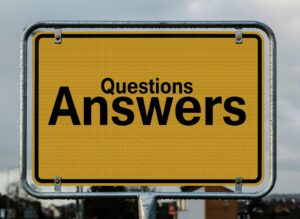Are you applying for a banking internship or graduate job in 2025? Then you’ve probably heard of the online assessments used by top firms like JPMorgan, Goldman Sachs, Barclays, HSBC and many others. These tests, ranging from numerical reasoning to situational judgement and even game-based challenges, are often the first (and toughest) hurdle. In this guide, you’ll learn exactly how to prepare for banking assessments, what to expect and how to boost your chances of passing on the first try.
Plus, we’ve included realistic online assessment practice questions to help you train like it’s the real thing.
- Why Banks Use Online Assessments
- What Types of Tests Should You Expect?
- Top Banks and Their Testing Providers
- How to Prepare for Each Type of Test
- Numerical Reasoning
- Verbal Reasoning
- Situational Judgement Tests (SJT)
- Game-Based Assessments
- Personality & Work-Style Tests
- Pro Tips to Maximize Your Score
- FAQs on Banking Assessment Tests
- Final Thoughts
Why Banks Use Online Assessments
The world’s leading banks receive hundreds of thousands of applications for internships and graduate roles every year. To fairly and efficiently screen candidates, most use online assessments as a first filter before interviews or assessment centers.
Online assessments are automated, objective, and scalable. They help banks evaluate:
- Cognitive ability
- Problem-solving skills
- Work personality
- Situational judgment
- Risk tolerance
Failing at this stage means your application is instantly rejected, so preparation is key.

What Types of Tests Should You Expect?
Depending on the bank and role, you might face a mix of the following:
| Test Type | Measures | Typical Format |
|---|---|---|
| Numerical Reasoning | Math skills, data interpretation | Timed multiple-choice questions |
| Verbal Reasoning | Reading comprehension, logic | Short paragraphs + follow-up questions |
| Situational Judgement (SJT) | Decision-making in work scenarios | Rank or choose responses |
| Game-Based Tests | Cognitive traits, personality | Short, timed mini-games |
| Personality/Work-Style Tests | Fit with company culture | Self-assessment questionnaires |
| Video Interviews | Communication & motivation | AI-recorded answers to questions |
Top Banks and Their Testing Providers
Here’s a quick overview of common test providers used by major banks:
| Bank | Assessment Provider | Test Types |
|---|---|---|
| JPMorgan | Pymetrics, HireVue | Game-based + video |
| Goldman Sachs | SHL, HireVue | Numerical, verbal, SJT, video |
| Barclays | Cappfinity | Strength-based SJT, numerical |
| Morgan Stanley | SHL | Numerical, logical reasoning |
| UBS | Aon/Cut-e | Ability, personality |
| HSBC | Korn Ferry | SJT, numerical, personality |
Knowing the provider gives you a major edge in preparing with realistic practice questions.
How to Prepare for Each Type of Test
Numerical Reasoning
This is the most common test in banking. You’ll be asked to analyze tables, charts, and graphs quickly and accurately.
Tips:
- Practice mental math and speed reading
- Use free resources like SHL sample tests or our practice packs
- Get familiar with percentages, ratios, and data interpretation
Example Question
A table shows the following bond yields over five consecutive quarters for Bond A and Bond B:
| Quarter | Bond A Yield (%) | Bond B Yield (%) |
|---|---|---|
| Q1 | 2.80 | 3.20 |
| Q2 | 3.10 | 3.50 |
| Q3 | 2.95 | 3.75 |
| Q4 | 3.40 | 4.00 |
| Q5 | 3.85 | 4.10 |
Question:
- By what percentage did the yield spread between Bond B and Bond A change from Q3 to Q5?
- Was the percentage increase in Bond A’s yield from Q1 to Q5 greater or smaller than that of Bond B?
Solution:
Step 1: Yield Spread Change (Q3 vs Q5)
- Q3 Spread = 3.75 – 2.95 = 0.80
- Q5 Spread = 4.10 – 3.85 = 0.25
- % Change = (0.25−0.80)/0.80(0.25 – 0.80) / 0.80(0.25−0.80)/0.80 × 100 = -68.75%
-> So the yield spread decreased by 68.75%
Step 2: Percentage Increase from Q1 to Q5
Bond A: (3.85−2.80)/2.80(3.85 – 2.80) / 2.80(3.85−2.80)/2.80 × 100 = 37.5%
- Bond B: (4.10−3.20)/3.20(4.10 – 3.20) / 3.20(4.10−3.20)/3.20 × 100 = 28.125%
- Bond A’s yield increased more than Bond B’s

Verbal Reasoning
These tests evaluate how well you understand and interpret written information.
Tips:
- Read business/financial articles (e.g., FT, Bloomberg)
- Practice identifying assumptions and drawing conclusions
- Don’t bring external knowledge, base your answers only on the passage
Example Format:
“Based on the passage, which of the following statements is most supported?”
Situational Judgement Tests (SJT)
SJTs test your work-based judgment by giving you real-world scenarios and asking how you would respond.
Tips:
- Think like a team player with high integrity
- Avoid extreme responses like total passivity or aggression
- Prioritize the bank’s values (e.g., client-first, compliance)
Game-Based Assessments
Used by JPMorgan (Pymetrics), these measure traits like attention, memory, and risk tolerance through gamified tasks.
Tips:
- Play similar brain-training games in advance (e.g., Lumosity)
- Stay calm and don’t overthink—trust your instincts
- Practice improves focus and reaction time
Personality & Work-Style Tests
These are not pass/fail but can flag a mismatch. Banks want profiles that match high-performance but ethical behavior.
Tips:
- Don’t try to “game” the test
- Emphasize conscientiousness, teamwork, and resilience
- Most important: Give consistent answers. Online assessments will test you by asking similar questions in different words. It is really important to recognize that and keep giving consistent answers.

Pro Tips to Maximize Your Score
- Practice under timed conditions: simulate the real pressure
- Use the same device you’ll take the test on (preferably desktop)
- Don’t rush through questions—accuracy matters more than speed
- Track your weak areas and focus on improving them
- Use test-specific prep platforms (especially if you know the test provider)
- Read all instructions carefully: some SJTs or games have traps for guessing
FAQs on Banking Assessment Tests
Q: How long do the tests take?
A: Usually between 20 to 60 minutes, depending on the test type and number of sections.
Q: Can I retake if I fail?
A: Usually no—many banks have a one-year ban after a failed attempt.
Q: Are these tests the same across all roles?
A: No. Investment banking roles may focus more on numerical, while operations or HR may use more SJT/personality tests.
Q: What if I’m not a finance student?
A: You can still do well! The tests measure general skills, not technical finance knowledge.
Final Thoughts
Online assessments are your first and most critical hurdle in the banking recruitment process. Preparing smartly and specifically for the type of tests used by your target banks can give you a huge advantage.
Want to practice with realistic mock tests used by Goldman Sachs, JPMorgan, and more?
Click here to start your prep now and boost your chances of success.





